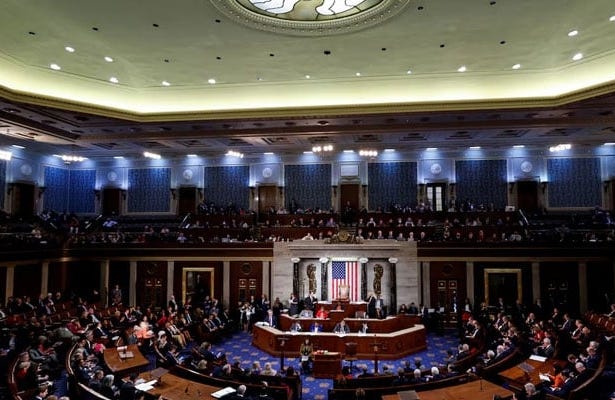Explaining the Folkways of Political Washington: Rescission
Last night, the Senate passed a $9.4 billion recission of federal funding for foreign aid programs and public radio and television. So what is “rescission” and why was this action a big deal?
A rescission is a request by the President to cut an appropriation previously enacted by Congress. The Impoundment Act of 1974 established this process, which allows the President to propose rescissions that Congress must act on within 45 legislative days. It requires approval by both the House and Senate, but unlike most matters in the Senate it only requires a majority vote.
Presidential requests for rescission of this magnitude is unheard of. Instead the most common use of rescission is to propose year-end “fact of life” revisions of the appropriations to make sure that funds that won’t be spent can be used elsewhere. When I was in the Pentagon, we routinely used this process to avoid losing funds that might otherwise not be spent. I have never seen the process used simply because a President did not like how Congress had appropriated funds.
This rescission package is highly unusual. It is important to note that most of the funds that are being rescinded were just appropriated by Congress just three months ago in March. This was not a Biden budget—it was a budget approved by President Trump. In original appropriations bill in March required 60 votes in the Senate, which meant that it had to be acceptable to Senate Democrats. This was a bipartisan budget deal that required concessions on both sides.
Even aside from the merits, this is troubling for several reasons. First. the passage of the rescission package is a betrayal of the compromise made in March. This betrayal will have consequences. Congress is in the middle of negotiation of the FY 2026 appropriations, which must be adopted before October. As with all appropriation bills (with the exception of reconciliation bills limited by the Byrd Rule), this appropriations package will require 60 votes. At least eight Democrats must vote in favor of any appropriations bill in order fore it to pass. In light of the rescission betrayal, how can Democrats be sure that any deal won’t be undone by a later rescission? As the Center on Budget and Policy Priorities explained:
But if Senate Republicans go along with the Administration’s efforts to simply remove spending they had earlier agreed to as part of the March deal, this would undermine the ability to strike future deals. Office of Management and Budget director Russell Vought has also indicated that the Administration “will strongly consider” sending further rescissions requests to Congress. And of course, the trust needed to make these deals is further undermined when the Administration also chooses to withhold money illegally without even submitting a rescissions package.
. . .
More generally, there’s little reason for the minority party in Congress to agree to a deal when the Administration and the majority party can strip away funding they don’t like in a purely partisan way, or if the Administration may attempt unilaterally — and illegally — not to implement it at all, with no pushback from the majority party in Congress. As a result, it would be far more difficult to reach the bipartisan agreements necessary to fund the government on time and with the resources required to serve the country’s needs.
Second, this is an abdication of Congress’ authority to control federal spending in the Constitution. Rescissions in the past have always reflected fact-of-life changes in expected spending. These were not major policy decisions, but more technical funding decisions to reflect reality. After all, the budget was passed by Congress and approved by the President so new major policy changes are ever reflected in a rescission package.
This time we have a rescission that is not a “fact-of-life” change, but a major change in spending levels simply because the President has regrets about the appropriations bill he signed just months ago. This too will have long term consequences.



Great analysis and explanation, Chuck. Keep ‘em coming!